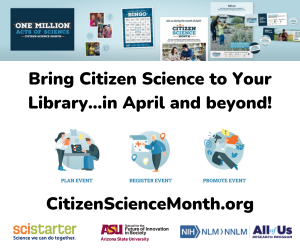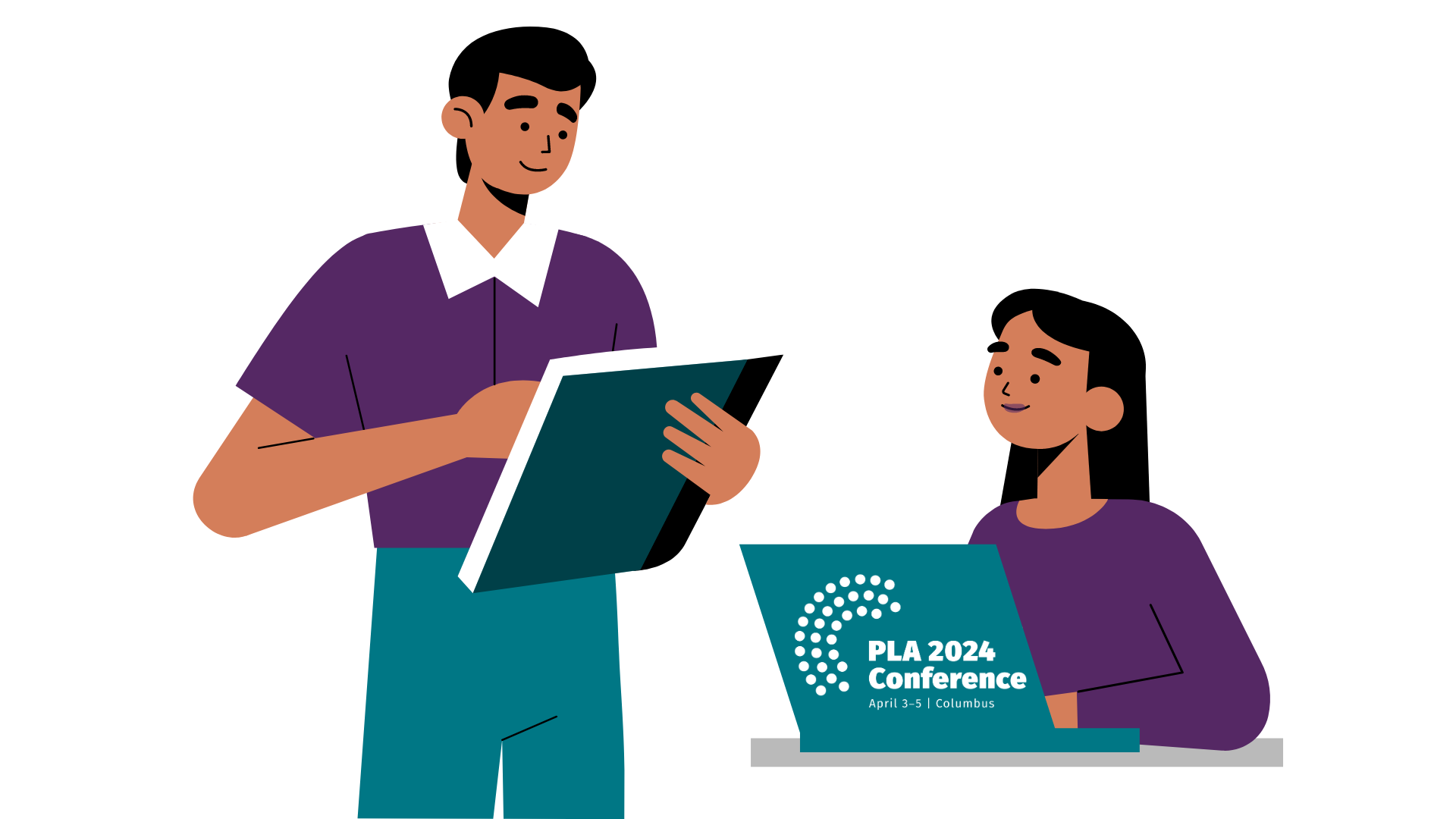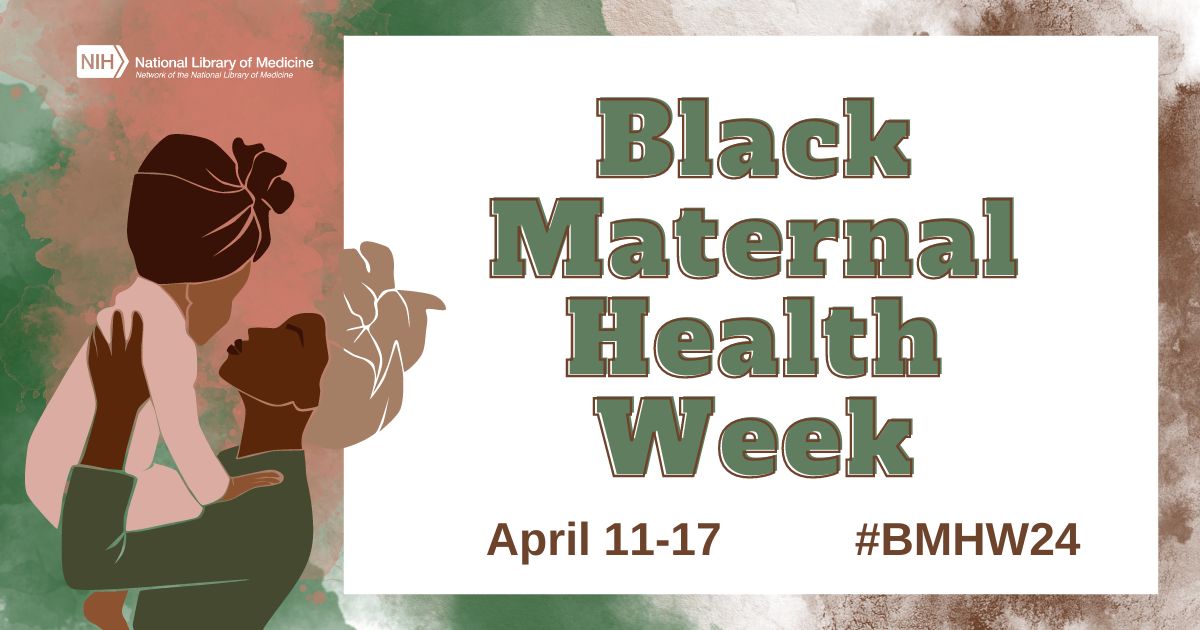Stuff We’ve Spotted Lately
Michael: “Hey David, how about for this column we jump all over the place and hit a string of ideas?” David: “What? I wasn’t paying attention. I was jumping between browser tabs and IM on my laptop.” Michael: “Perfect! That’s what we’ll make this column like.” David: “Huh? Ok.”
Netflix
Did you see that Netflix just started using Amazon’s Web Services to run both its back-end and customer-facing applications? That might seem like a side note of sorts, but it’s actually a pretty big deal. Amazon, as we know, sells much of the same stuff that libraries circulate, at least when it comes to the popular things. On top of that, Amazon has the largest and most used collection of book reviews anywhere. Plus, Amazon currently has the bestselling e-reader device in the world with the Kindle. Study after study shows that the brand or thing that people identify with the library is the book. But when it comes to e-books, people think of the Kindle (and a few other devices)—not the library.
Now add Netflix into the mix. Netflix CEO Reed Hastings said, “We named the company Netflix for a reason; we didn’t name it DVDs-by-mail. The opportunity for Netflix online arrives when we can deliver content to the TV without any intermediary device.”1 If libraries don’t have a way to effectively circulate the kind of material that Netflix can, they are in trouble.
Netflix circulates movies and television shows via its website for a price. Of course they sell access and libraries don’t do that, so it isn’t quite the same, but the goal to get content to people is the same, simply with different business models. According to Wikipedia, Netflix had 14 million subscribers as of March 2010 (though more official estimates are closer to 13 million). Yes, it’s a rental model, but you could also call it a for-fee circulation model. A model that libraries don’t have, but might need to adapt for future success, given the direction technology is taking.
Netflix is now using Amazon’s hardware and software infrastructure for its for-fee circulation. If you think Amazon isn’t interested in making a portable computer designed for multimedia consumption, well, let’s just say they don’t want that sweet Kindle business to die anytime soon.
I’ve been researching and presenting on the topic of electronic content access and distribution and library futures for a few years now, and watching how it impacts libraries. This Netflix/Amazon partnership for distributing electronic content seems to align both companies pretty strategically going forward.
So, we see electronic content providers aligning to increase their efficacy and customer base. None of them are interested in helping libraries circulate electronic content unless it makes them money. Libraries can, with very few exceptions, only offer this content if they have a physical format. But Netflix, Amazon, iTunes, and so on are providing online or electronic-only access to that same content.
Aside from current budget woes, not having an effective electronic content access and distribution model is the most important and challenging issue facing libraries today and over the next decade to come.
Google’s getting into content in a big way, too. Sure, they already have Gmail and Google Docs. What they haven’t covered up to now is traditional television shows and print books—until now.
Google TV is a software platform for television set-top boxes and HDTVs that’s based on Google’s Android operating system. Here’s what Google says about it:
Google TV is a new experience for television that combines the TV that you already know with the freedom and power of the Internet. With Google built in, you can access all of your favorite websites and easily move between television and the Web. This opens up your TV from a few hundred channels to millions of channels of entertainment.2
Google Editions is an outgrowth of Google Books. Google wanted to digitize books. Publishers weren’t fond of that idea, so there was a lawsuit (which is now settled) and Google’s real goal is starting to be realized. From Google: “You’ll be able to purchase full online access to millions of books.”3 Google wants to take that idea a bit further—by selling online books.4
Google has the potential to turn into a major online bookseller for digital content, and to create a major subscription service for online video content. If Google pulls this off, it will have its hands in a lot of content that your patrons want and would have access to—without you.
Facebook has started making largescale changes to their privacy settings and people are noticing. So while Facebook was the darling of most for a long while, the luster has faded for some users, with thousands disabling or deleting their accounts in protest.5
It’s to the point where Mark Zuckerberg, head of Facebook, released a privacy statement to The Washington Post.6 By the time you read this, their efforts regarding privacy will likely be released and evaluated. Will they respect privacy the way libraries do? Surely not. But they will do what they need to keep their business from being significantly damaged. Keep watching this topic on Facebook and in the other online social tools you use. It isn’t going away and it is finally getting some much-needed, large-scale attention.
Premium Services
There are lots of websites charging for access to premium services and we use some great ones that might be useful to share. A Flickr Pro account is a good example. Now just send us a list of the premium websites you pay to use so we can include them in the next column!
References
- Matthew Boyle, “Questions for . . . Reed Hastings,” Fortune, May 23, 2007, http://money.cnn.com/magazines/fortune/fortune_archive/2007/05/28/100034248/index.htm (Accessed June 18, 2010).
- The Official Google Blog, “Announcing Google TV,” http://googleblog.blogspot.com/2010/05/announcing-google-tv-tv-meets-web-web.html (Accessed June 18, 2010).
- “The Future of Google Books,” http://books.google.com/googlebooks/agreement (Accessed June 18, 2010).
- Jessica E. Vascellaro and Jeffrey A. Trachtenberg, “Google Readies Its E-Book Plan, Bringing in a New Sales Approach,” The Wall Street Journal, May 4, 2010, http://online.wsj.com/article/SB10001424052748703866704575224232417931818.html?KEYWORDS=google (Accessed June 18, 2010).
- Guilbert Gates, “Facebook Privacy: A Bewildering Tangle of Options,” The New York Times, May 12, 2010, www.nytimes.com/interactive/2010/05/12/business/facebook-privacy.html (Accessed June 18, 2010).
- “Zuckerberg: Facebook Answers Privacy Concerns,” The Washington Post, http://tinyurl.com/2utqa7w (Accessed June 18,
2010).








